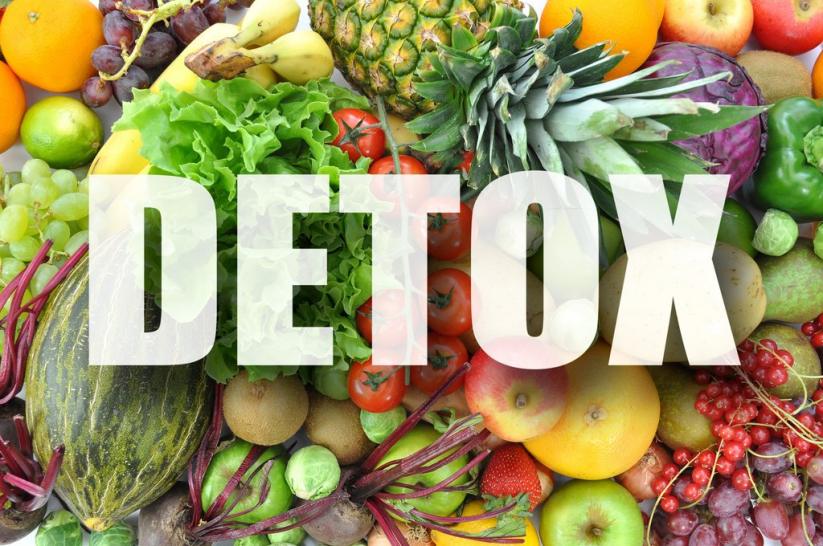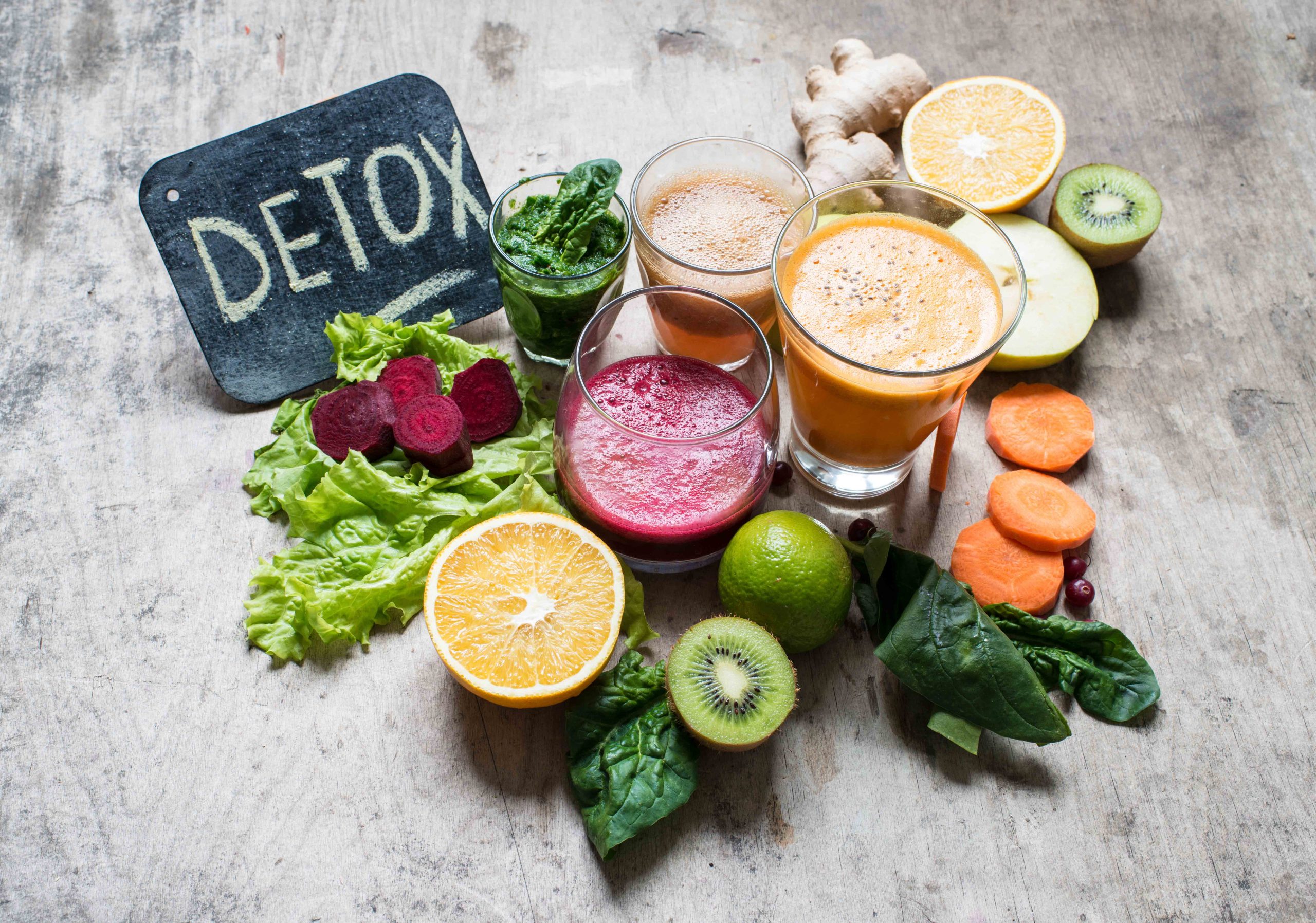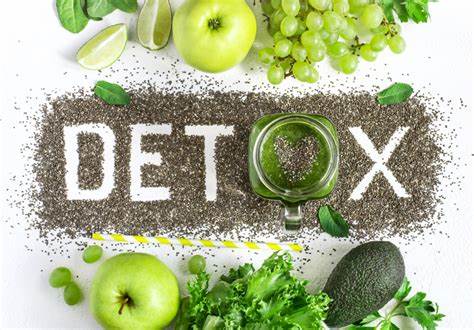Herbal Detoxification for Good Body Function and Healthy Living

Body detoxification is the process of eliminating toxins from the body. Toxins can be pollutants, synthetic chemicals, heavy metals, and processed foods that may negatively affect health. However, it’s important to note that the human body is naturally equipped with its own detoxification system. Organs like the liver, kidneys, digestive system, skin, and lungs work together to remove these harmful substances without the need for special diets or supplements.
Natural detoxification processes can be done through healthy lifestyle choices such as:
- Limiting alcohol consumption: The liver metabolizes alcohol and excessive drinking can damage liver function.
- Staying hydrated: Drinking water helps the kidneys to filter out waste.
- Eating a balanced diet: Consuming plenty of fruits, vegetables, and whole grains supports the digestive system.
- Getting enough sleep: Sleep allows the body to repair and regenerate.
- Exercising regularly: Physical activity increases blood circulation and helps to eliminate toxins through sweat.
It’s always best to consult with a healthcare professional before starting any detox regimen, especially if you have underlying health conditions or are taking medication
Herbal Detoxification
Herbal detoxification is a traditional approach that uses various herbs to support the body’s natural detoxification processes. These herbs are believed to assist in cleansing the body by enhancing the function of the liver, kidneys, and digestive system, which are responsible for removing toxins.
Here are some commonly used herbs for detoxification and their associated benefits:
- Milk Thistle: Known for its liver-protecting properties, milk thistle may help regenerate liver cells and protect against toxins.
- Dandelion Root: Often used to support liver function, it may also have diuretic effects, helping the kidneys flush out waste.
- Ginger: This root is a potent antioxidant that can stimulate digestion and soothe the digestive tract, potentially improving nutrient absorption and relieving digestive issues.
- Turmeric: Another powerful antioxidant, turmeric is believed to support digestion and has anti-inflammatory properties.
- Cranberry: Commonly used for kidney health, cranberry may aid in cleansing the urinary tract.
- Green Tea: Rich in antioxidants, green tea is thought to improve skin health and provide a gentle detoxifying effect.
Incorporating these herbs into your diet can be done through teas, supplements, or adding them to food. However, it’s important to approach herbal detoxification with caution as there can be potential side effects and interactions with medications. Always consult with a healthcare professional before starting any new herbal regimen, especially if you have underlying health conditions or are taking other medications.
Remember, while herbs can support the body’s natural detoxification, they are not a substitute for a healthy lifestyle. Maintaining a balanced diet, staying hydrated, getting regular exercise, and ensuring adequate sleep are all crucial for supporting your body’s ability to detoxify itself
Dietary detoxification

Dietary detoxification typically involves following a specific diet or using special products that claim to rid your body of toxins, thereby improving health and promoting weight loss.
Here are some methods that are often associated with dietary detoxification:
- Fasting: Temporarily abstaining from eating to allow the body to focus on eliminating toxins.
- Juice Cleanses: Consuming only fruit and vegetable juices for a short period to provide nutrients while supposedly flushing toxins.
- Herbal Supplements: Using herbs that are believed to support detoxification organs like the liver and kidneys.
- Colon Cleanses: Using enemas or laxatives to remove waste from the colon.
- Elimination Diets: Removing certain foods from the diet that are believed to contain toxins and then gradually reintroducing them.
While these methods are popular, many claims about their effectiveness are not backed by scientific evidence. Some detox diets can be harmful, leading to nutrient deficiencies and other health issues.
The function of the body organs in the body detoxification process
The body has a sophisticated detoxification system involving several organs that work together to neutralize and eliminate toxins. Here’s an overview of the primary organs and their functions in the detoxification process:
- Liver: The liver is the central organ in detoxification. It filters the blood to remove large toxins, synthesizes and secretes bile containing cholesterol and other fat-soluble toxins, and enzymatically disassembles unwanted chemicals.
- Kidneys: The kidneys filter the blood to remove waste and excess substances, which are then excreted in the urine. They play a crucial role in removing water-soluble toxins.
- Colon: The colon, or large intestine, helps to remove waste material and bacteria from the body. It also absorbs water and electrolytes, which is essential for maintaining the body’s fluid balance.
- Lymphatic System: This network of tissues and organs helps rid the body of toxins, waste, and other unwanted materials. The primary function of the lymphatic system is to transport lymph, a fluid containing infection-fighting white blood cells, throughout the body.
- Skin: The skin is the body’s largest organ and plays a role in detoxification through sweat. Sweating can help eliminate certain toxins and waste products.
- Lungs: The lungs help expel carbon dioxide, a natural waste product of the body’s metabolism, during the process of breathing.
These organs work in concert to ensure that toxins are effectively processed and removed from the body. It’s important to maintain the health of these detoxification pathways by leading a healthy lifestyle, including a balanced diet, regular exercise, and adequate hydration
The impact of detoxification on the body

The impact of detoxification on the body can vary depending on the method used and the individual’s health. Detox diets and cleanses are often marketed as a way to remove toxins from the body, promote weight loss, and improve overall health. However, the scientific evidence supporting these claims is limited, and the body’s natural detoxification systems are generally very effective at removing toxins without the need for special diets or supplements.
Here are some potential impacts of detoxification on the body:
- Weight Loss: Some detox diets involve severe calorie restriction, which can lead to weight loss. However, this weight loss is often temporary and may not be sustainable.
- Nutrient Absorption: Detox diets may claim to increase nutrient absorption, but there is little evidence to support this.
- Energy Levels: While some people report feeling more energetic during a detox, others may experience tiredness and fatigue, especially if the detox involves cutting out caffeine or sugar.
- Mental Clarity: Some individuals believe that detoxing can help with mental clarity, though this is subjective and not scientifically proven.
- Electrolyte Imbalance: Certain detox methods can disrupt fluid balance, leading to an increased risk of electrolyte imbalance or dehydration.
- Digestive Health: Detox protocols that include fasting or consuming only juices may temporarily alter gut flora and digestion.
It’s important to approach detoxification with caution, as some methods can be harmful and lead to health risks such as electrolyte imbalances, dehydration, and nutrient deficiencies. The best way to support the body’s detoxification is through a healthy diet, regular exercise, adequate hydration, and sufficient sleep.
If you’re considering a detox regimen, it’s crucial to consult with a healthcare professional to ensure it’s safe for you and to discuss the most effective ways to support your body’s natural detoxification processes
Some plants and their specific detoxification function on the body
Plants and herbs have been used for centuries in various cultures for their detoxification properties. They are believed to support the body’s natural detoxification processes, particularly the liver, kidneys, and digestive system. Here are some plants and their specific functions related to detoxification:
- Dandelion: Known for its diuretic properties, dandelion supports liver and gallbladder function, increasing the elimination of toxins through urine.
- Burdock Root: This plant is used to increase diuresis and help the body get rid of toxins. It has been traditionally used to treat skin rashes and other conditions.
- Milk Thistle: Contains silymarin, which supports liver function by activating specific metabolic pathways of detoxification.
- Cilantro: Binds to heavy metals in the body and facilitates their elimination.
- Red Clover: Purifies the blood and helps eliminate toxins through the skin, kidneys, or intestines.
- Stinging Nettle: Acts as a diuretic and purifies the blood, also providing essential nutrients like calcium and vitamins A and C.
- Garlic: Supports the body’s mechanism to destroy foreign cells and stimulates white cell production.
- Ginger: Known for its antioxidant properties, ginger can protect the body from toxin overload and support digestion.
These herbs can be incorporated into the diet in various forms, such as teas, supplements, or as part of meals. However, it’s important to use them with caution as they can interact with medications and may have side effects. Always consult with a healthcare professional before starting any new herbal regimen, especially if you have underlying health conditions or are taking other medications.
In addition to these herbs, certain foods can also support detoxification pathways. For example, cruciferous vegetables like broccoli, cauliflower, and kale are beneficial for liver function. Incorporating a variety of these foods and herbs into a balanced diet can help support the body’s natural detoxification processes.

